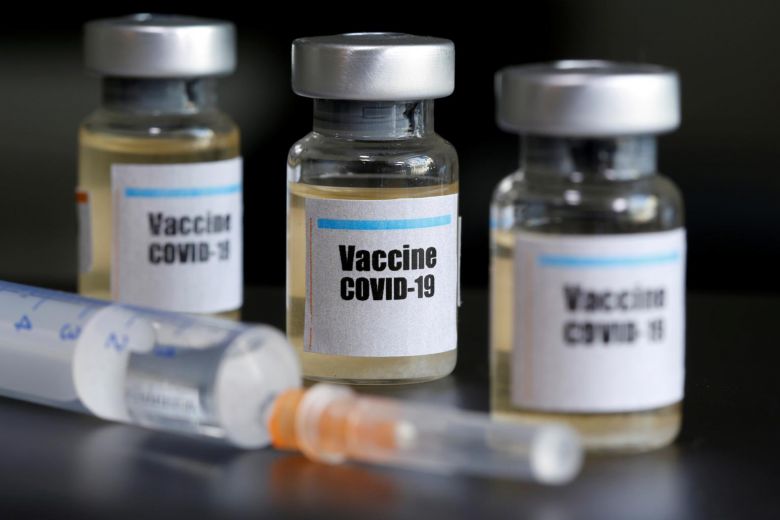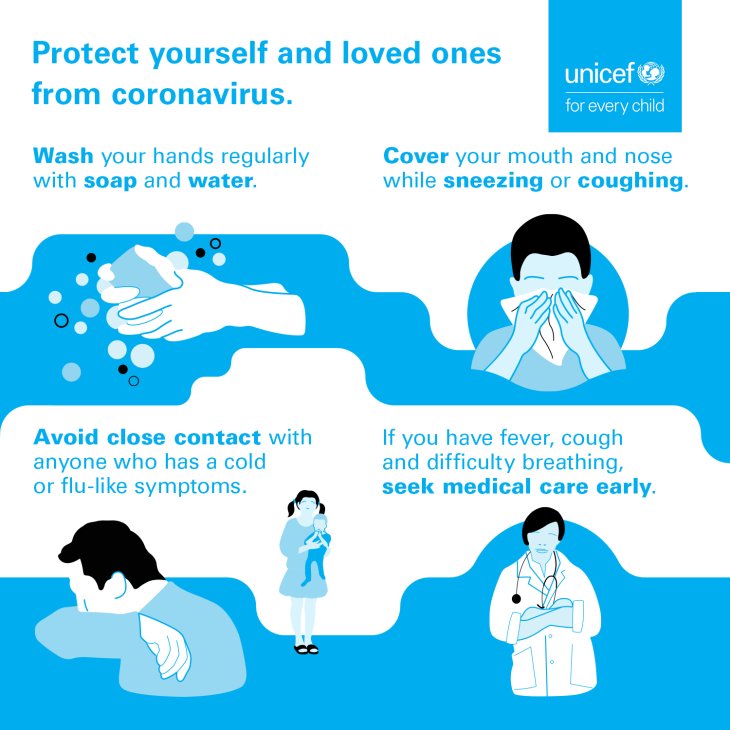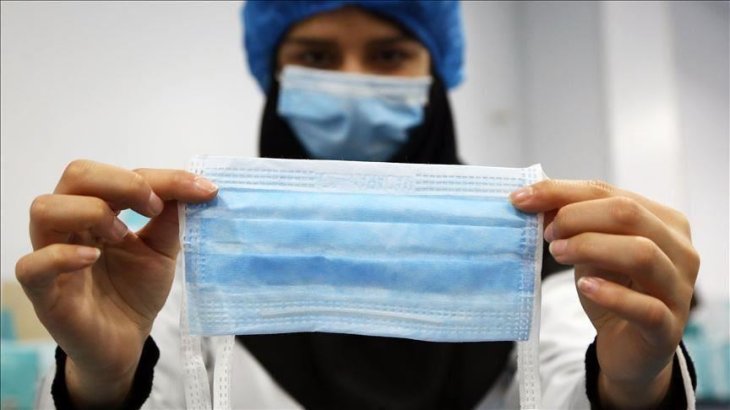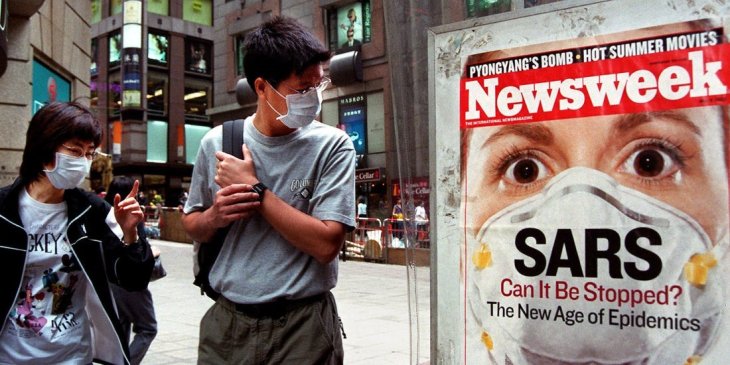What Will Happen If There Is No Covid-19 Vaccine In The Future?
Karamchand Rameshwar - Apr 29, 2020

The world is waiting for the vaccine against Covid-19, but if that vaccine will not emerge in the future, will we have prepared Plan B for such a future?
- This Man's Super-Antibody Can Be Diluted 10,000 Times But Still Works Against COVID-19
- These Indian Cities Are Under Lockdown Again In 2021
- India To Review Covishield Vaccine After Report Of Blood Clots Following Vaccination
There is no guarantee we will soon have a Covid-19 vaccine. Therefore, we need to understand the best ways to wear masks, wash hands and other interventions to control the spread of disease.

The Covid-19 pandemic curve has been "flattened" in a handful of countries around the globe but no new anti-virus drugs or vaccines have been successfully developed.
We have so far stopped the spread mainly by non-pharmacological interventions such as social distancing, quarantine, hand hygiene. As for health workers, masks & other protective equipment are what they need to keep them away from getting infected.
We all hope to have a vaccine by 2021. But in the meantime, what should we do? And more importantly, what happens if there is no vaccine in the future?
The world has spent most research funds on the search for effective vaccines and drugs against Covid-19. It is undeniable that this effort is necessary, but it should be accompanied by research on how to address and improve non-pharmacological interventions, which are currently the most effective way to cope with the current pandemic.
There has been a lot of debate over many basic questions like whether we should use a mask, whether we have to stay 1, 2 or 4 meters apart from each other, and whether we have to wash our hands with soap, disinfectant, or just water? Those are the questions we need to answer immediately.
What are non-pharmacological interventions in fighting COVID-19?
According to medical researchers, non-pharmacological measures are the subject of about 40 percent of clinical trials. However, these measures receive far less attention than drug & vaccine development and testing.

During the Covid-19 pandemic, a lot of money was given to research groups to develop vaccines and drug trials that have potential against coronavirus.
Hundreds of clinical trials of vaccines and drugs are underway, but we can only find a few trials for non-pharmacological interventions and in particular, none how to improve these measures.
The whole world put its efforts and hopes into the successful development of a drug or a vaccine to treat Covid-19. However, many experts, including Ian Frazer, who developed Australia's HPV vaccine, said that this would not be easy or fast.
If an effective vaccine or antiviral drug is yet to emerge, we need a Plan B to use non-pharmacological interventions. That is why we need research to determine which measures are effective and how to make them as effective as possible.
The importance of studies on non-pharmacological interventions
We often think of handwashing, wearing masks, social distancing as simple measures and do not need any studies. In fact, non-pharmacological interventions are often much more complicated.
Developing and implementing a non-pharmacological intervention is different from developing a vaccine or drug.

For example, there is a "mask for everyone" campaign (#Masks4All) to encourage people to wear masks. But the question is what kind of mask do we need to wear, and what should the material of the mask be? When and where to wear? There is very little discussion about these specific questions.
Or washing your hands may sound like a simple measure, but how many times should we wash our hands? 2 times / day, 10 times / day, or any other specific number? What is the best way to educate people to wash their hands properly?
Besides, is it better to wash your hands with hand sanitizer than with soap and water? Which mask and hand washing are more effective or both of these measures?
Those are just a few of the many other things we don't know about non-pharmacological interventions.
Other non-drug options are also broad, including environmental studies, such as temperature, air condition, and surfaces (such as SARS-CoV-2 "die" faster on copper compared to other hard surfaces).
In addition, is there a certain epidemic control measure we are currently taking that doesn't work? Probably yes. But the problem is that we have no idea which ones are those. We need to know this as soon as possible because we should not waste effort, time, and resources on ineffective measures.
The next pandemic
If we are successful in developing a vaccine against Covid-19, we will be able to control the current pandemic. But what if the next pandemic or other disease outbreaks occur?
Vaccines only work against certain viruses, so if a new virus threatens us next time, we will end up in the same situation as the Covid-19 pandemic or even worse.
However, what we have learned from current non-drug interventions may be helpful to protect us against other type of viruses, while waiting for new drugs or vaccines to be released.
We have had the opportunity to study non-pharmacological interventions for previous respiratory viruses, especially during the SARS epidemic in 2003 and the H1N1 pandemic in 2009.

However, many opportunities for more in-depth analysis have been wasted and we are now desperately searching for answers to the questions we once asked.
Plan B
To prepare for the future, in the event that the vaccine does not emerge, we need to conduct randomized clinical trials with non-pharmacological measures to prevent the spread of the virus.
The pandemic is now giving us a rare opportunity to quickly conduct trials, answering many questions we don't know about a range of non-pharmacological interventions.
Vaccine and antiviral research is the best way to overcome the Covid-19 pandemic, but focusing all of the financial resources, efforts, and resources on these studies could turn into an expensive mistake in terms of economic and healthcare. Therefore, we always need a Plan B to cope with the disease, not only with Covid-19 but also in future pandemics.
>>> Pune-Based Serum India Will Start COVID-19 Vaccine Production In 3 Weeks
Featured Stories

Features - Jan 29, 2026
Permanently Deleting Your Instagram Account: A Complete Step-by-Step Tutorial

Features - Jul 01, 2025
What Are The Fastest Passenger Vehicles Ever Created?

Features - Jun 25, 2025
Japan Hydrogen Breakthrough: Scientists Crack the Clean Energy Code with...

ICT News - Jun 25, 2025
AI Intimidation Tactics: CEOs Turn Flawed Technology Into Employee Fear Machine

Review - Jun 25, 2025
Windows 11 Problems: Is Microsoft's "Best" OS Actually Getting Worse?

Features - Jun 22, 2025
Telegram Founder Pavel Durov Plans to Split $14 Billion Fortune Among 106 Children

ICT News - Jun 22, 2025
Neuralink Telepathy Chip Enables Quadriplegic Rob Greiner to Control Games with...

Features - Jun 21, 2025
This Over $100 Bottle Has Nothing But Fresh Air Inside

Features - Jun 18, 2025
Best Mobile VPN Apps for Gaming 2025: Complete Guide

Features - Jun 18, 2025
A Math Formula Tells Us How Long Everything Will Live
Read more

ICT News- Feb 19, 2026
Escalating Costs for NVIDIA RTX 50 Series GPUs: RTX 5090 Tops $5,000, RTX 5060 Ti Closes in on RTX 5070 Pricing
As the RTX 50 series continues to push boundaries in gaming and AI, these price trends raise questions about accessibility for average gamers.

ICT News- Feb 21, 2026
AI Coding Agent Causes Major AWS Outage at Amazon
In a striking example of the risks associated with deploying advanced AI in critical systems, Amazon Web Services (AWS) recently faced multiple outages attributed to its own AI coding assistants.

ICT News- Feb 20, 2026
Tech Leaders Question AI Agents' Value: Human Labor Remains More Affordable
In a recent episode of the All-In podcast, prominent tech investors and entrepreneurs expressed skepticism about the immediate practicality of deploying AI agents in business operations.
Comments
Sort by Newest | Popular